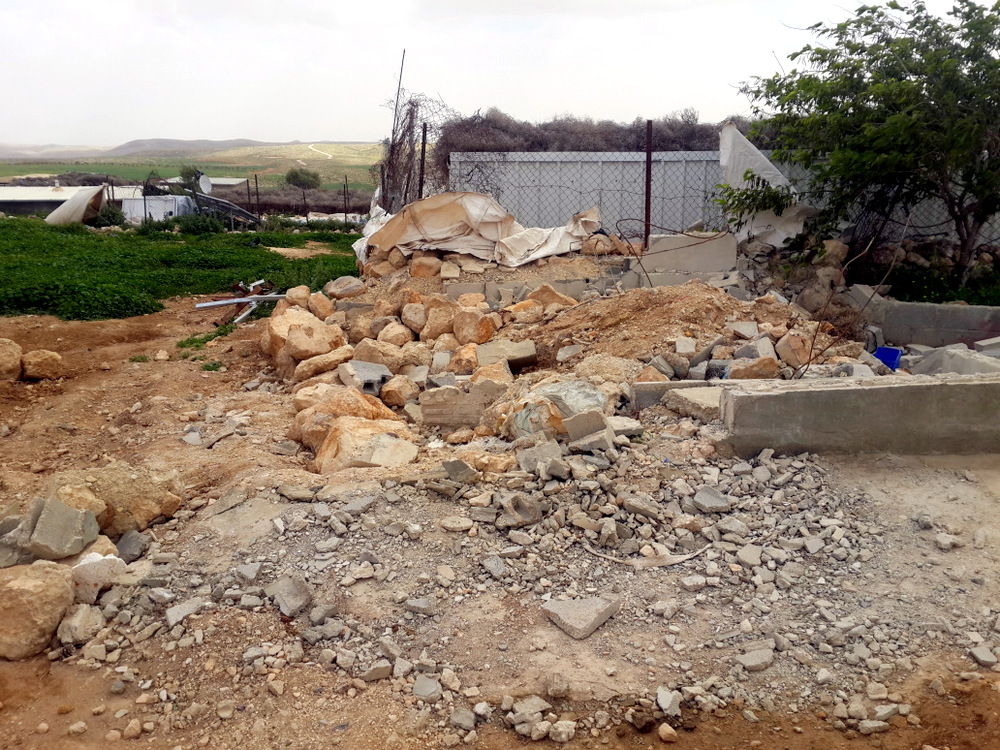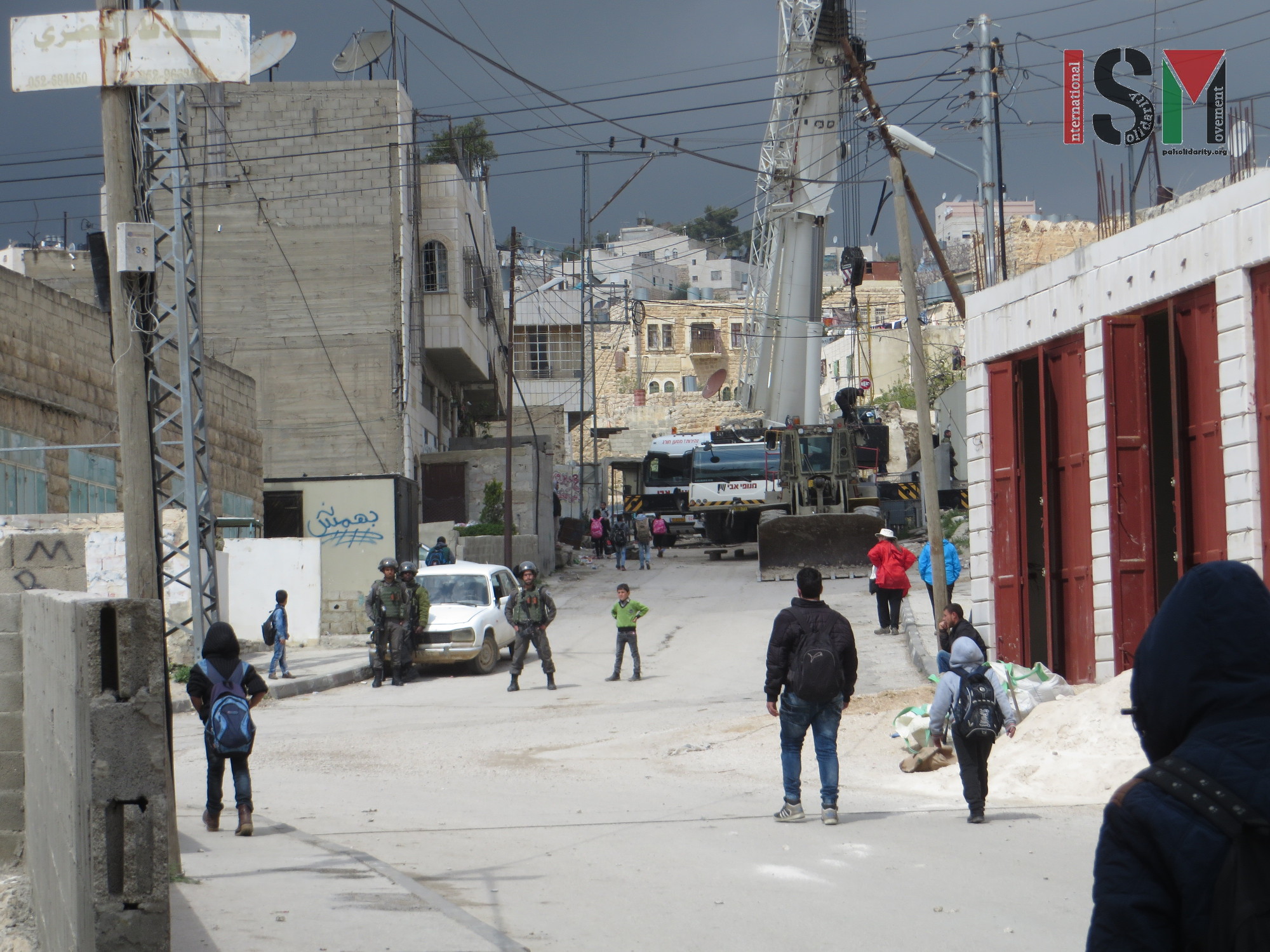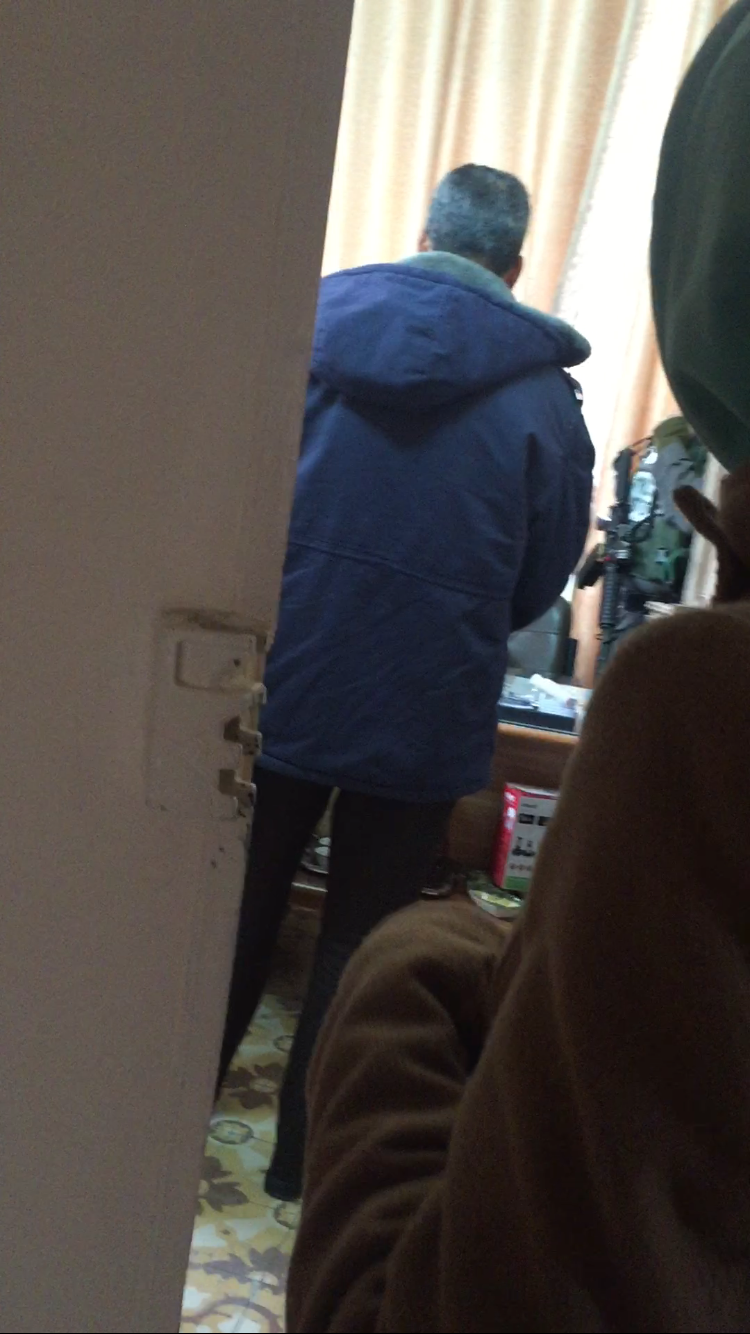Tag: Ethnic Cleansing
-
Demolitions in Khirbet Jenba, South Hebron Hills
23rd March 2016 | B’Tselem | South Hebron Hills, occupied Palestine This morning, the Israeli Civil Administration demolished a home, shed and an animal enclosure in Khirbet Jenbah, in the Masafer Yatta area of the southern Hebron Hills. The authorities also confiscated solar panels donated by an international aid agency. Photos from Today’s demolition. Credit:…
-
Schoolboys stopped from walking home as Israeli forces expand checkpoint
22 March 2016 | International Solidarity Movement, al-Khalil team | Hebron, occupied Palestine On 21st March 2016, Israeli forces at Salaymeh checkpoint in occupied al-Khalil (Hebron) stopped Palestinian schoolboys on their way home, preventing them from passing through the checkpoint. Around noon, as a cluster of schools near the Salaymeh checkpoint finished classes for the…
-
Israeli Forces push their way into girls school
21st March 2016 | International Solidarity Movement, al-Khalil team | Hebron, occupied Palestine On Sunday, 20th March 2016, Israeli forces raided the al-Faihaa girls school in occupied al-Khalil (Hebron), using the staff in the school as human shields. In the morning, three heavily-armed soldiers in full combat gear entered the premises of the school when…



